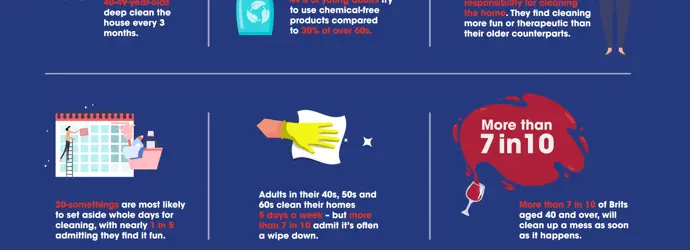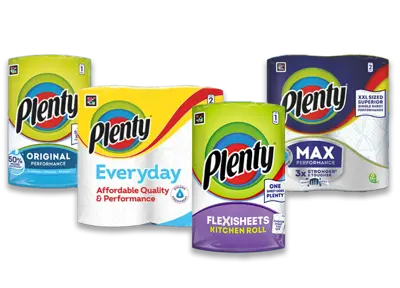
So what does our survey say? Well it’s younger adults who are now more likely to deep clean with adults in their twenties deep cleaning three days a week.
Brits in the 40s, 50s and 60s clean their homes on average, five days a week, according to the survey by household towel brand Plenty which polled 2,000 adults. However, more than seven in 10 of them admit that while they clean regularly, it’s often just quick wipe down.
It also emerged those aged 18-29 are the most eco-conscious cleaners, who use more chemical-free cleaning products and are most concerned about the harmful substances in their sprays.
Where bacteria can harbour in the kitchen:
• Fridge handles. Germs in the kitchen are often found on refrigerator door handles. You might want to grab something from the fridge mid-recipe without having a chance to wash your hands. One report shows refrigerator handles have roughly the same number of bacteria as a toilet handle.
• Rubber seals – the ones around food storage containers tested positive for Salmonella, yeast, and mould.
• Pizza cutters - the inner fixings of a pizza cutter are hard to clean too – they tested positive for E. coli.
• Kitchen sinks. When you’re washing your plates and cooking utensils, some bacteria is bound to form around the sink and plughole. Any raw meat juices or dirt from vegetables clings around sinks meaning that there are 11 million germs on every 10cm of your sink.
• Kitchen sponges. You use it to clean so much around the kitchen, but you might not realise how dirty sponges get. Kitchen sponge bacteria gathers as you clean around your kitchen, wiping down dirty surfaces. How dirty is a kitchen sponge? The average sponge carries over 362 million germs per gram, which is why sponge hygiene is key.
Tips for tackling germs in the kitchen:
• Clean high-traffic areas every day. Give areas that are touched frequently such as handles and taps a wipe with one sheet of Plenty Max, dampened with water, once a day. Up your hygiene by using paper towels instead of a sponge for those germy jobs like wiping around the plug hole.
• Use an old toothbrush for getting into corners. Bacteria tends to live in hard-to-reach areas – so grab an old toothbrush to clean those tight spots.
• Clean the sink – properly. It’s easy to give the sink a final wipe – but that’ll just leave your kitchen sponge germs in other areas. Finish off your sink cleaning with one sheet of Plenty Max and water.

